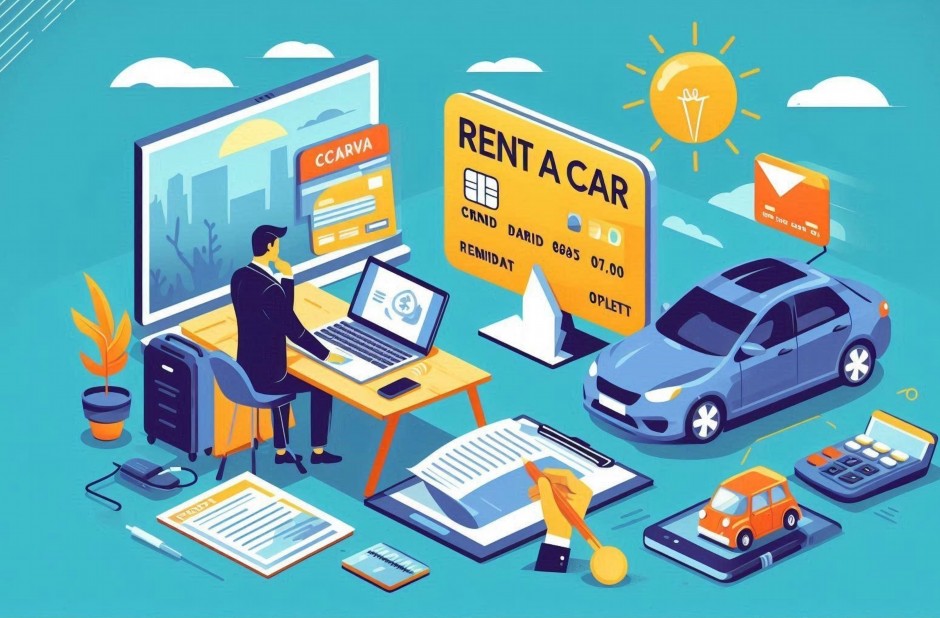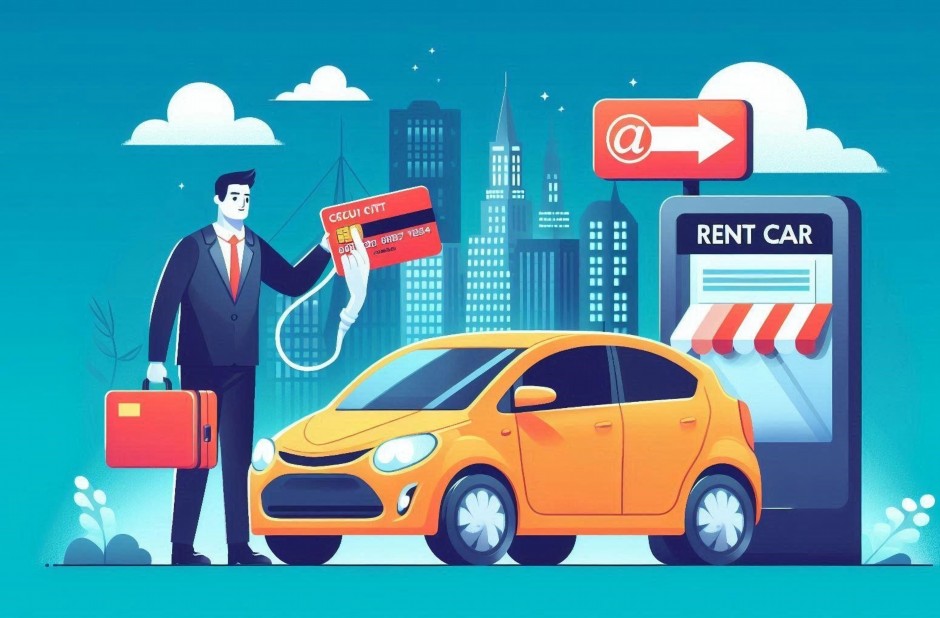
Renting a car has traditionally been associated with credit card requirements that can be a significant barrier for many travelers. Whether you don't own a credit card, prefer not to use one, or want to avoid the temporary authorization holds that can tie up your credit limit, there are several viable alternatives. This comprehensive guide explores various methods to rent a vehicle without relying on a credit card, giving you the freedom to travel on your own terms.
Why Car Rental Companies Prefer Credit Cards
Before diving into alternatives, it's important to understand why rental companies typically require credit cards:
- Security against potential damages
- Ability to charge for traffic violations or toll fees discovered after the rental period
- Verification of customer identity and financial reliability
- Convenience for applying additional charges (fuel, late returns, etc.)
Despite these preferences, many companies have expanded their payment options to accommodate a broader customer base.
Debit Card Rental Options
Using a debit card is the most straightforward alternative to a credit card when renting a vehicle. However, the process typically involves additional requirements and potential limitations.
Requirements When Using Debit Cards
When renting with a debit card, be prepared for:
- Higher security deposits (typically $200-$500 or more)
- Credit checks that may impact your credit score
- Additional identification verification (utility bills, proof of insurance, etc.)
- Restrictions on vehicle types (luxury or premium vehicles may be unavailable)
- Minimum age requirements that might be stricter than with credit card rentals
- Return flight or travel itinerary confirmation at some locations
The deposit amount will be held in your bank account, so ensure you have sufficient funds beyond what you need for your trip. This hold typically remains for several days after returning the vehicle.

Major Rental Companies Accepting Debit Cards
These national and international companies typically accept debit cards with varying policies:
- Enterprise: Accepts debit cards at most locations with proof of return travel
- Hertz: Accepts debit cards with additional verification
- Avis: Allows debit cards at most locations with additional documentation
- Budget: Accepts debit cards with a valid driver's license and second form of ID
- Dollar: More debit-card friendly with fewer restrictions at many locations
- Thrifty: Similar to Dollar, offers flexible debit card policies
Always check the specific location's policy, as requirements can vary even within the same company depending on whether you're renting at an airport or neighborhood location.
Cash Rental Options
Though less common, some rental companies still accept cash payments, though almost never at the beginning of the rental period.
Cash Deposit Process
The typical process for a cash rental includes:
- Making a reservation in advance (often required)
- Completing an application form with personal information
- Providing multiple forms of identification
- Presenting proof of insurance and utility bills
- Submitting to a background or credit check
- Paying a cash deposit (usually higher than credit/debit deposits)
Cash deposits typically range from $300 to $500 for economy vehicles and can exceed $1,000 for premium models. This deposit is refunded upon returning the vehicle without damage.
Companies That May Accept Cash
These companies are more likely to have cash acceptance policies at select locations:
- Advantage Rent-A-Car: Known for cash-friendly policies at many locations
- Fox Rent A Car: Accepts cash at select locations with proper documentation
- Payless Car Rental: Offers cash options at certain branches
- Local and independent rental agencies: Often more flexible than national chains
Cash payment options are more commonly available for returning customers who have established a relationship with the rental company.

Alternative Payment Methods
Prepaid Cards and Travel Cards
Some rental companies accept prepaid cards or travel cards, though with significant limitations:
- Must be branded with major network logos (Visa, Mastercard, etc.)
- Should have sufficient funds for the rental cost plus a substantial deposit
- May only be accepted for returning the vehicle, not for the initial rental
- Typically require additional identification and verification
Companies like Alamo and National have been known to accept certain prepaid cards, but policies change frequently, so verify before relying on this option.
Digital Payment Services
The rental car industry is slowly adapting to digital payment methods:
- PayPal: Some online booking platforms allow PayPal for reservations
- Digital wallets (Apple Pay, Google Pay): Increasingly accepted at major chains
- Peer-to-peer car sharing services: Often offer more flexible payment options
These methods usually require linking to a bank account or debit card and may still involve holds or deposits.
Car Sharing and Peer-to-Peer Rental Alternatives
Traditional rental companies aren't your only option for temporary vehicle access:
- Turo: Peer-to-peer car sharing platform with flexible payment options
- Getaround: Hourly rentals with digital verification instead of traditional credit checks
- Zipcar: Membership-based car sharing that accepts debit cards for membership fees
- Local car sharing programs: Community-based options with diverse payment policies
These alternatives often focus more on digital verification and user ratings than traditional credit requirements, making them accessible to those without credit cards.

Advanced Planning Tips
Booking Strategies
To improve your chances of successfully renting without a credit card:
- Book directly with the rental company rather than through third parties
- Call ahead to verify the location's specific payment policies
- Make reservations well in advance, especially during peak travel seasons
- Consider neighborhood (non-airport) locations, which often have more flexible policies
- Join loyalty programs, which may provide more payment flexibility for members
Documentation to Prepare
Have these items ready when attempting to rent without a credit card:
- Valid driver's license (held for at least 1 year)
- Secondary government-issued ID (passport, ID card)
- Recent utility bills in your name (less than 3 months old)
- Proof of insurance with appropriate coverage
- Return travel itinerary (especially for airport rentals)
- Recent pay stubs or proof of employment (sometimes required)
Preparing this documentation in advance streamlines the rental process and demonstrates your reliability to the rental company.
Conclusion
While credit cards remain the preferred payment method for car rentals, numerous alternatives exist for those unable or unwilling to use them. By researching company policies, preparing proper documentation, and considering alternative rental services, you can successfully navigate the car rental process without a credit card. Remember that requirements vary by location and company, so always verify the specific policies before finalizing your travel plans.
With these strategies, the freedom of a rental car is accessible to everyone, regardless of credit card status. Plan ahead, understand the requirements, and enjoy the convenience and flexibility that comes with having your own wheels on your next journey.
